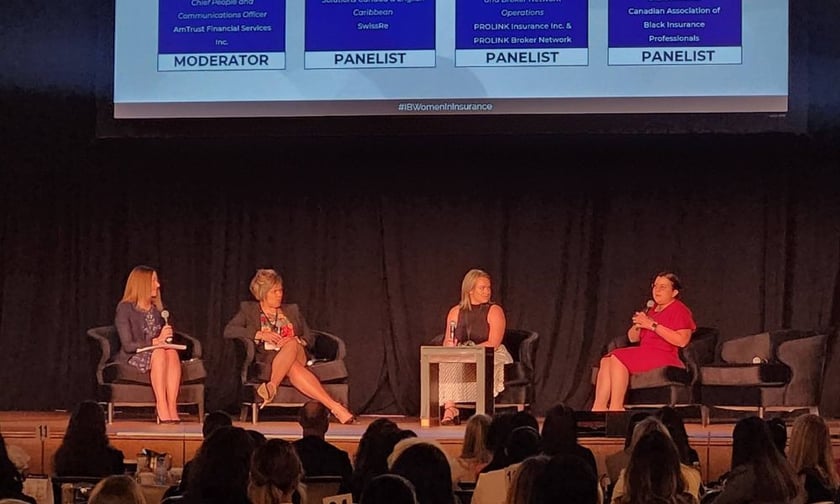

During the Women in Insurance Toronto conference, which saw professionals join together for a day of business talk and interpersonal mingling, one key discussion topic was upward mobility in insurance.
The fireside chat titled “Accelerating your career – The latest scoop on skills development,” had panellists consider what attributes helped drive their learning and helped them build their leadership credentials.
For Melissa Bajwa, vice president, compliance and broker network operations at Prolink Insure, a useful trait for continuous growth is feeling uncomfortable.
“Learning should prevent challenges and obstacles to overcome,” she said. “Complacency and feeling comfortable means you are becoming stagnant, whereas feeling uncomfortable taps into a wider skillset.”
Insurance Business was on the scene at the conference, and here is a rundown of some highlights from this panel and other discussions that were held.
During the fireside chat, two of the other participating panellists referenced author and motivational speaker, Simon Sinek, and his philosophy of adopting a curious mindset.
Marcela Abreu, vice president, head, P&C solutions, of Swiss Re’s Canada & English Caribbean sector, said what allowed her to move upwards within her career was dictated by consistently asking the question “why?”
“I’ve always been very curious and understanding why I’m doing what I’m doing,” she said.
“This was to better understand how my clients work, how my company works, and what skills and habits help me work better and more efficiently.”
Dionne Bowers, owner of D.B. Solutions and co-founder of the Canadian Association of Black Insurance Professionals, echoed this sentiment.
“I’ve always believed in the power of why,” she said. “I’m always curious to learn more about the people around me, how they approach their work and what drives them to be successful.”
This has led Bowers to realize the benefits of continuing education, whether through micro-credentials or certifications.
“Being able to get the appropriate designations in this industry has helped to accelerate my career,” she said. “I was always taught that I had to be 10 times better than my counterparts in order to get ahead, and these values have inspired me to widen my knowledge and approach my duties from a more holistic angle.”
The understanding of what makes a successful leader is undergoing an evolution.
“Gone are the days where business and profits were the urgent concerns,” Bajwa said.
Instead, there is a shift towards human and employee-centric leadership.
“We need to know what makes our employees thrive,” Bajwa added. “In doing so, we can create an environment of motivation, as well as self and group satisfaction, which ultimately impacts how a business can attain more success.”
To implement this type of leadership successfully, managers and upper-level staff need to have better emotional intelligence.
“We can’t be reactive,” Bajwa said. “We need to communicate thoughtfully and attentively, rather than react quickly based on fleeting emotions.”
Part and parcel to employee-centric leadership is also maintaining authenticity and transparency.
“We also have to foster honest and open relationships with our employees, follow through on our commitments, and hear their concerns,” Bajwa said.
When individuals enter into the leadership and C-suite level realm, that should not complete their professional journey.
“We can never be stagnant,” Bowers said.
Leaders have the responsibility of constantly acquiring new forms of knowledge and listening to their peers on how to better operations within a company.
“It’s one thing to have a hunger to learn when starting off in insurance, but that passion should never reach a logical conclusion, especially as the industry transforms through the adoption of new technologies,” Bowers said.
Leaders need to be able to adapt to change quickly, taking on new challenges, while also understanding how to work through setbacks.
“Growth is a journey, not a race,” Bowers said.
Other topics that were discussed during the event, in between breakout networking sessions, included promoting intersectionality, which teaches that embracing different forms of identities and ideas in crucial to a more sustainable workplace.
A panel on market trends stressed the complexities of the ESG framework in a business environment, and how new standards are keeping both insurers and insureds more actively engaged. Similarly, the rise of generative AI and other technological interventions were also discussed, and how it can be successfully harnessed without downplaying traditional insurance roles.
